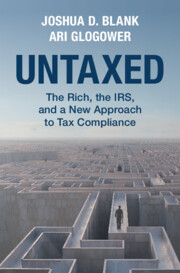Recent media reports have revealed a substantial number of highly-paid senior civil servants and BBC presenters have been using “off payroll” arrangements and personal services companies to reduce the tax paid on their earnings. This article examines the tax and National Insurance contribution (NIC) savings that can be had by carrying on economic activity through a company rather than as an unincorporated business or an employee. These savings derive from a combination of favourable tax and NIC rates on companies, and can be further increased through family income-splitting arrangements, as witnessed in the case of Jones v Garnett. Several possible reforms to address the distortions and inequity in the present tax and NIC regimes in favour of companies are considered, including amendments to the IR35 “disguised employment” regime and the anti-income-splitting rules known as the settlement provisions. Applying the new statutory general anti-abuse rule, which the Government plans to introduce in Finance Act 2013, is another possible approach. The preferred option, however, is to deal with the root problem and pursue closer alignment of the tax and NIC treatment of activity carried on in different legal forms.
